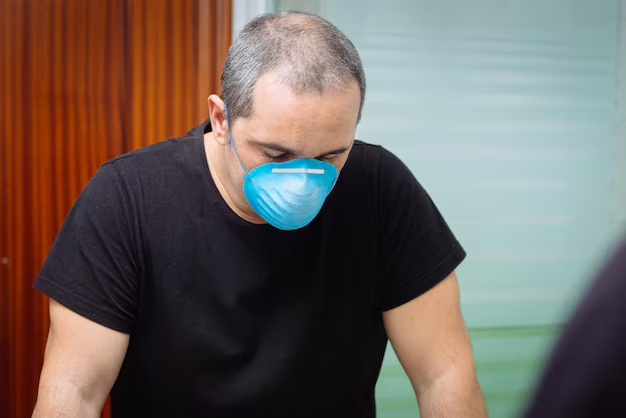Understanding the Duration of Pneumonia Recovery After Antibiotics
Pneumonia is a challenging respiratory infection that can impact anyone, regardless of age or overall health. Discovering that you or a loved one has pneumonia might be overwhelming, igniting a flurry of questions and concerns. One of the most pressing questions often is: How long does pneumonia last after starting antibiotics? Let's delve into this topic by exploring the factors that influence recovery time and how these affect the healing journey.
What is Pneumonia?
Pneumonia is an inflammatory condition of the lungs primarily caused by bacteria, viruses, or fungi. It results in the air sacs in the lungs becoming filled with pus and other liquid, leading to coughing, fever, chills, and difficulty breathing. While responsive to treatment, pneumonia does vary in its severity, making understanding its timeline critical.
Types of Pneumonia
- Bacterial Pneumonia: Typically more severe and quickly onset, it is most commonly caused by a bacterium known as Streptococcus pneumoniae.
- Viral Pneumonia: Often less severe than bacterial pneumonia, viral infections can sometimes set the stage for bacterial infections.
- Fungal Pneumonia: Less common, this type affects those with weakened immune systems and can stem from specific fungi living in soil or bird droppings.
The Role of Antibiotics in Pneumonia Treatment
How Antibiotics Work
Antibiotics are medications designed to combat bacterial infections. They work by either killing bacteria or preventing them from reproducing. For bacterial pneumonia, antibiotics are pivotal in curtailing the progression of the disease and hastening recovery.
When Antibiotics Are Effective
It's important to remember that antibiotics are only effective against bacterial pneumonia. Viral or fungal pneumonias need different treatment approaches and will not respond to antibiotics. Misusing antibiotics can lead to resistance, making managing infections more challenging.
Factors Impacting Recovery Time
Recovery from pneumonia can vary significantly from person to person. Here are some variables that influence the duration:
1. General Health and Age
- Younger individuals and those in robust health without chronic conditions tend to recover faster.
- Older adults or those with compromised immune systems may experience more prolonged recovery periods.
2. Severity of Pneumonia
- Mild cases of pneumonia might resolve quicker, within a week or two, while severe cases can take months.
- Hospitalization is often necessary for acute cases, adding complexity to the recovery timeline.
3. Response to Antibiotics
- Some individuals notice symptom relief within the initial 48-72 hours of beginning antibiotics.
- If symptoms persist beyond this window, contact healthcare providers for reassessment.
Expected Recovery Timeline
When addressing how long pneumonia lasts after antibiotics, it's crucial to remember that individual experiences may differ. Here’s a general framework:
Initial Days (Day 1-3)
- Symptom Monitoring: Monitor for reductions in fever and respiratory distress. Early improvement signs can indicate effective antibiotics.
- Rest and Hydration: Critical in supporting the body's immune response, easing the taxing symptoms of pneumonia.
First Week (Day 4-7)
- Detecting Improvement: Gradual diminishing of symptoms like fever and cough; energy levels may slowly return.
- Continued Medication: It's essential to complete the antibiotic course even if symptoms improve to prevent recurrence or resistance.
Two to Three Weeks
- Reduced but Present Symptoms: Cough and fatigue may linger, but their intensity should decrease over time.
- Re-evaluation: If symptoms are unabated, medical reassessment is necessary.
Beyond a Month
- Persistent Symptoms: Should symptoms persist well beyond the general recovery window, further investigation into possible complications or incorrect initial diagnosis is prudent.
Supporting Recovery Beyond Antibiotics
Even beyond antibiotics, several practices can significantly aid recovery:
Oxygen Therapy
- For Severe Cases: When pneumonia leads to severe breathing problems, supplemental oxygen is sometimes recommended.
Physiotherapy
- Breathing Exercises: Support clearing mucus and improving lung capacity.
- Mobility in Older Patients: Encourages circulation, helps prevent muscle loss due to inactivity, and expedites recovery.
Diet and Nutrition
- Hydration: Remaining well-hydrated is crucial for recovery.
- Balanced Diet: Provides nutrients that fortify the immune system.
Rest and Lifestyle Adjustments
- Adequate Sleep: Essential for regenerating immune function.
- Avoid Smoking: Smoking can exacerbate symptoms and delay recovery.
Potential Complications
While most individuals recover without issues, complications can arise:
- Pleural Effusion: Accumulation of fluid in the layers surrounding the lungs.
- Lung Abscesses: Pockets of pus within the lung.
- Bacteremia: Spreading infection to the bloodstream, linking to further complications.
Final Insights
Recovery from pneumonia requires patience and careful adherence to medical guidance. While antibiotics are crucial for treating bacterial pneumonia, understanding and managing other influencing factors can significantly affect the recovery timeline.
Here’s a brief, user-friendly summary of key points regarding pneumonia treatment and recovery:
🌟 Quick Summary of Pneumonia Recovery Steps 🌟
- Understand Symptoms: 🏥 Fever, cough, difficulty breathing – seek medical advice promptly.
- Start Antibiotics for Bacterial Pneumonia: 💊 Follow your doctor’s directives strictly.
- Monitor Recovery: 📅 Initial improvement in 48-72 hours is expected; consult if no change.
- Supportive Care: 💦 Plenty of fluids, rest, and nutrition.
- Adjust Lifestyle: ❌ Avoid smoking; manage pre-existing health conditions.
- Be Patient: ⏳ Recovery can take weeks; allow adequate time for healing.
With a cautious yet hopeful approach, traversing the path to recovery becomes more manageable, ensuring you return to your day-to-day activities healthily and robustly.

Related Articles
- a Typical Pneumonia
- Can a Cold Turn Into Pneumonia
- Can a Sinus Infection Turn Into Pneumonia
- Can Amoxicillin Cure Pneumonia
- Can Amoxicillin Treat Pneumonia
- Can Baby Oil Cause Pneumonia
- Can Bronchitis Turn Into Pneumonia
- Can Covid Turn Into Pneumonia
- Can Doxycycline Treat Pneumonia
- Can Flu Turn Into Pneumonia
